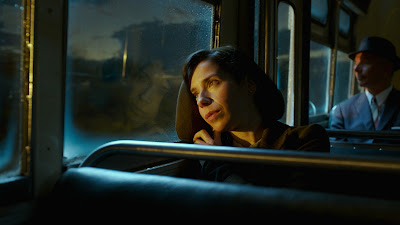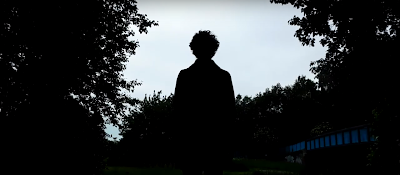2018 Recap
2018: A Year for New Voices in Film
Another year has come and gone, and it was a weird and chaotic one. With world leaders that make no sense, populism overtaking all corners of the world, and climate change looming ever closer, our world may seem hopeless. Fortunately, we have cinema to lighten up our lives and give us hope the future. This year we've had some of the most original and important films of the century, with incredible masterpieces one after the other. And one of the most evident aspects of this year's cinema is the dominance of stories about those who are usually silenced by society and dominance of female-lead stories and female-directed films. For far too long, these stories have been side-lined and ignored. For far too long, women have merely been the observed, the target of the male gaze. But not anymore. If we have seen anything this year, it's that the world is changing, and as misogynistic and racist leaders are gaining power, artists and audiences are crying out for a better world for everyone. Society is changing and these politicians will not bring that progress down, and soon they will see their support disappear under their feet. Women will not be satisfied with just being the observed. Minorities will not be satisfied with being misrepresented. They will also be the observers. And they are here to change the way we look at the world and are here to widen our comprehension of it.
Already last year there was a change starting in cinema, with critically acclaimed and original female-centered film like Lady Bird, The Shape of Water, and Three Billboards Outside Ebbing, Missouri. But the year of 2018 was an exceptionally important year for the representation of women in cinema, not only in America but all over the world. There were stories about women of all ages and backgrounds. And, in these stories, women are not represented to please the male eye, they are represented as they really are. They are vulnerable, irreverent, unapologetic, emotional, independent, unstable, broken, and free.
Starting from the youngest, we’ve had great films that explore the world of young girls in a way that we have never seen before. In Bo Burnham’s Eighth Grade, for the first time, we see an accurate and mature portrayal of the current generations growing up in a digital world, without any patronization and condescendence, all through the story of the last week of eighth grade of a 14-year-old introverted girl. There are no words to describe how hungry we were for this story and how thankful I am for it. In Desiree Akhavan’s The Miseducation of Cameron Post, we follow the story of a teenage girl forced into gay conversion therapy camp, in one of the most important films of the film in its realistic portrayal of queer youth. This is an extremely important feature, not only for its realism but also because the director is a queer woman, bringing a new (queer) eye to this important story.
This year we’ve had so many great films with prominent female roles and performances, like Paul Dano’s look into the crumbling of the traditional ideal of family in Wildlife – with a critically-acclaimed performance from Carey Mulligan – Pawel Pawlikowski's beautiful masterpiece about a romance that transcends all borders in Cold War – with an incredible performance from Joanna Kulig – Brady Corbet’s crazy look into modern pop culture in Vox Lux – with an astonishing performance from Natalie Portman – and Bradley Cooper’s incredible remake of A Star Is Born – with an amazing performance from Lady Gaga.
However, what is the biggest highlight and novelty this year is the amount of incredible female-dominated films that bring extremely complex analysis of the position of women in society. In Marcelo Martinessi’s The Heiresses, we saw a film with a cast completely comprised of actresses, with men being pushed into the position of mere extras, allowing us to look at the women and the networks they form in order to survive in a patriarchal society. In Alfonso Cuarón’s masterpiece, Roma, we have one of the most beautiful looks into the condition and the triumph of women in the face of adversity in the 20th century. In this beautiful black-and-white film, we take not only a look at Mexican society as a whole, but also at a singular family, being able to see the impact of women in both spheres. In Yorgos Lanthimos’ The Favourite, a bizarre love triangle story set in the 18th-century British court, that is not only an empowering story about women where we witness the games of power played by women and how they are really the ones that run the world, but also an important historic queer story. Also in horror and sci-fi, we had important female-dominated films. In Luca Guadagnino’s Suspiria, where even the only prominent male character is played by an actress (the ever-astonishing Tilda Swinton), a great remake of a beloved horror classic. And in Alex Garland’s Annihilation, a film about a biologist that finds herself going on an expedition to a mysterious area where the laws of nature don’t apply – an extremely important film for its representation of women in STEM fields, mainly because the entire team of researchers in the expedition is made up of only women. And in a more mainstream take, we also had Steve McQueen’s Widows, where a group of four widowed women try to fix the mess left by their husbands, in a compelling story where we see an empowering story about female cooperation and the relationships between women of different ethnicities.
This year, we not only saw a strong presence of women in front of the camera but also behind it. We saw a whole new take on the Western genre and masculinity in Chloé Zhao’s The Rider, one of the most revolutionary films of the year, We’ve had an intimate new look at our relationship with each other and our bodies and our sexuality in Adina Pintilie’s Touch Me Not. We saw a moving and original tale about good and innocence in Alice Rohrwacher’s Happy as Lazzaro. In Nadine Labaki’s Capernaum, we saw a very original look at Lebanese society from the viewpoint of a young boy who sues his parents over negligence. And we’ve had brilliant visions in Debra Granik’s Leave No Trace and Tamara Jenkins’ Private Life. All in all, this year has been a breakthrough for women in front and behind the camera.
But not all great masterpieces of the year have been about women. In Paul Schrader’s First Reformed, we saw one of the most important films of the year, an urgent call of our dying world being destroyed by the greed of the powerful. We saw a beautiful new look into what “family” really means in Hirokazu Kore-eda’s Shoplifters. And we saw one of the most beautiful and intimate biographies of all time, with such a touching character study, in Damien Chazelle’s First Man.
We also had great LGBTQ stories this year, both indie and mainstream. We had the first mainstream teenage gay romance film, Love, Simon. We had a powerful lesbian romance set in a harsh conservative Jewish family household in Sebastián Lelio’s Disobedience. And we also had a touching story about a teenage transgender girl who dreams of becoming a ballerina in Lukas Dhont’s Girl.
This year was also an important year for films directed by African-American directors about African-Americans. We saw this in brilliant masterpieces like Spike Lee’s BlacKkKlansman, an empowering story about a black cop who infiltrates the local KKK, Boots Riley’s irreverent Sorry to Bother You, a crazy and original look at our modern capitalist world that, despite its title, asks no apologies, and Barry Jenkins’s beautifully shot If Beale Street Could Talk, a reflection on the condition of black men and women in America, both in the ’70s (when it’s set) and today. And we also had a great box office hit in the marvelous blockbuster Black Panther (directed by Ryan Coogler), which took the world by storm, breaking numerous box office records.
This year was one where we got to see stories about those that are heard the least, both in indie and mainstream films. Cinema is a tool to give a voice to those who are often voiceless in our society, and this year it did just that. This was an exceptional year for the representations that we saw of worldviews that are usually ignored. It’s an example of why we need diversity in cinema, not only in front of the camera but also behind it. This was, in my opinion, the best year for cinema of this decade, and maybe this century. There were so many original new voices that we heard and new eyes that we saw through, with so many young directors catching our attention. I still have to watch many of the films I talked about here, and I am really looking forward to that. I hope this year was a sign of change, not only in cinema, but in society as a whole, as we become more and more aware of realities different from our own.




Comments
Post a Comment